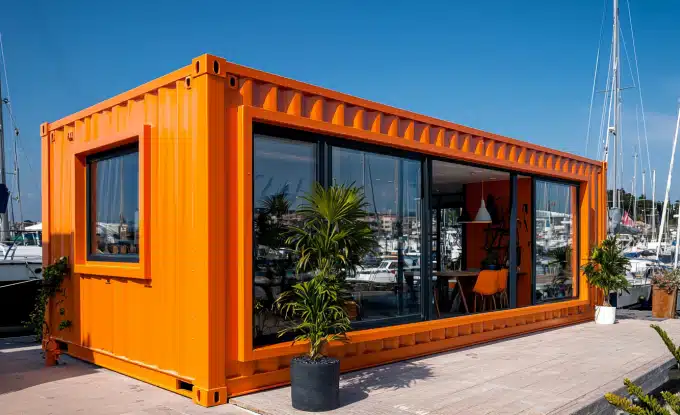
What is an ICF construction?
If you’re looking to build a house or to construct any kind of building, you might’ve heard of ICF. The three-letter abbreviation stands for Insulating Concrete Formwork. When speaking about ICF people mean blocks (or sheets) of polystyrene foam. Their primary use is to hold and fix foundations or/and walls of constructions in-place. There are a lot of different unique features and benefits of ICF. In this article, we will cover the basics of what is an ICF construction.
Table of Contents
ToggleFirst off – the basics of Insulating Concrete Formwork
As the name suggests, this material is primarily appreciated for its insulating purposes. Polystyrene is known for being very thermal-resistant, hence its common application in the field of construction. In addition, ICF blocks are very durable, able to withstand crushing, stretching, bending and other forces.
From a standpoint of a modern and conscious consumer, ICF’s are also superb because they’re self-decaying and biologically neutral. They’re filled with concrete and form durable constructions, capable of withstanding major forces.
Thanks to the low manufacturing costs as well as brilliant engineering, Insulating Concrete Framework is probably one of the most direct ways to create a construction that’s resistant, versatile, easily adaptable, energy efficient and also friendly to the environment.
Properties and application
In terms of real-world use, there is no shortage of places where one can expect to find ICF blocks underneath the façade. Offices, industrial buildings, homes, hospitals, service stations… Pretty much whatever you can imagine can be constructed using the Insulating Concrete Formwork blocks.
Your contractor will be able to choose the right thickness and width, depending on your needs. As we’ve mentioned before, the thermal insulation qualities make them a supreme choice for whatever needs. A+ and A++ energy classes can be met when ICF’s are used.
The strengths of this material
Insulated Concrete Framework blocks are very adaptable and are widespread throughout the world of construction. However, it would be beneficial to know their exact advantages and benefits, when used in the real world.
First and foremost, we have to put the energy efficiency. Spend less on heating and have a more conscious approach towards building management. Whilst being super affordable, these blocks offer to meet A+ and A++ energy class requirements which are mandatory in most EU countries by now.
There’s also the affordability and the fast construction. When fused together, these blocks form, sort of a unified construction that is durable, resistant and remains intact.






